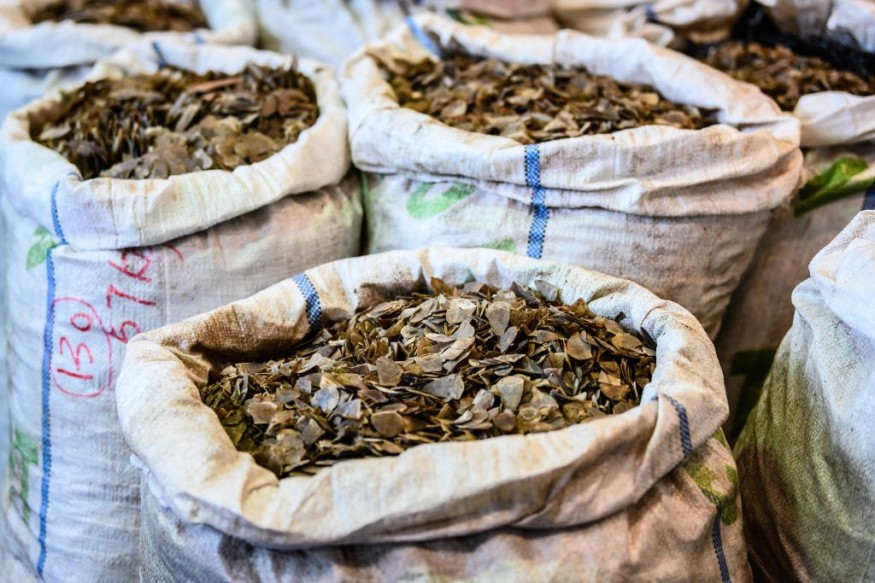
Authorities in Thailand were able to capture the consignment of pangolin scales worth $1.4 million before it was allegedly transported to China and sold there, killing almost 4000 pangolins in the process.
$1.4M Pangolin Scales
More than a ton of pangolin scales estimated to be worth more than 50 million baht ($1.4 million) were reportedly seized by Thai authorities on Thursday and were allegedly destined for export over a land border.
Intended to be taken out through Mukdahan province, a region that shares a border with Laos, the scales that cover a particular species of anteater were discovered Wednesday night in the northern province of Kalasin, according to Thai police, who announced the discovery at a press conference held in Bangkok on Thursday.
As reported by Ariyapol Sinsorn, the Natural Resources and Environmental Crime Division deputy chief, two male suspects who were on a truck with the scales were detained and accused of illegally possessing the carcasses of protected species. He claimed that the two men had admitted to the charges.
It is believed that the pangolin scales, which sell for an estimated 40,000 baht ($1,129 a kilogram), were imported from Malaysia to Thailand and then will be shipped to Laos. According to Kamnuan Chan-anan, the environmental crime division regional deputy chief, it was reportedly on its way from there for sale to customers in China. He claimed that additional research is being done to establish the transport route.
4000 Dead Pangolins
The scales were stored in fertilizer sacks with a Chinese character and various numbers, and they were revealed during a press conference. According to the authorities, they think the numbers are meant to designate the scales' level of quality.
According to wildlife protection officer Prasert Sonsatahpornkul, the scales are thought to have come from at least 3,000-4,000 deceased pangolins. He said that the scales will be analyzed to determine the species of the hunted pangolins.
Chinese Medicine and Delicacy
Because they are threatened, pangolins cannot be traded. Although there is no scientific evidence that animal scales have any medical effect, traditional Chinese medicine makes use of them because they contain keratin, a protein also present in rhino horn. In Vietnam and a few areas of China, pangolin flesh is prized.
Populations across Asia are being decimated by excessive poaching due to consumer demand for pangolin scales and flesh.
According to a 1938 study, dried scales are used instead of fresh ones to treat a variety of illnesses by being roasted, ashed, or fried in a boy's urine, oil, butter, vinegar, or oyster shells. Children with extreme anxiety and frantic sobbing, ladies who have been possessed by demons and ogres, malaria, and deafness are a few of them.
A total of 15 distinct ailments were reported in a study from 2021, making it impractical to combine the data to produce conclusive findings. Squama Manitis (pangolin scales) mixed with a herbal decoction or antibiotics may provide extra benefits for treating mesenteric lymphadenitis and postpartum hypogalactia, according to two randomized controlled trials.
However, the poor methodological quality and unreasonable results made this result unreliable. The outcomes from the other two RCTs were unsuccessful. Because of their small sample sizes, insufficient records, and unstandardized outcome detection, all non-RCTs did not provide any worthwhile evidence of the effectiveness of Squama Manitis treatment. The study later concluded that the clinical use of squama manitis cannot generally be supported by the evidence that is currently available.
Related Article : Carcasses of Protected Wildlife Found in Woman's Car in a Railway Station in Bangkok
© 2025 NatureWorldNews.com All rights reserved. Do not reproduce without permission.





